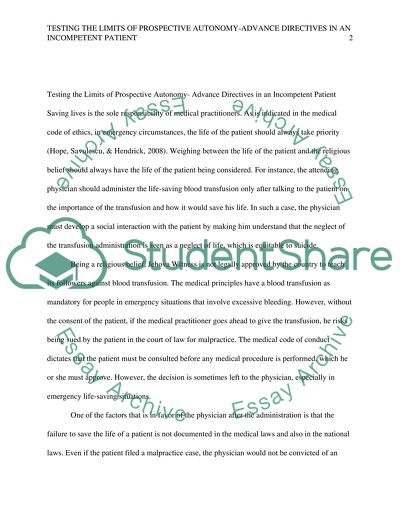Testing the limits of prospective autonomy- advance directives in an Essay. Retrieved from https://studentshare.org/social-science/1695466-testing-the-limits-of-prospective-autonomy-advance-directives-in-an-incompetent-patient
Testing the Limits of Prospective Autonomy- Advance Directives in an Essay. https://studentshare.org/social-science/1695466-testing-the-limits-of-prospective-autonomy-advance-directives-in-an-incompetent-patient.


